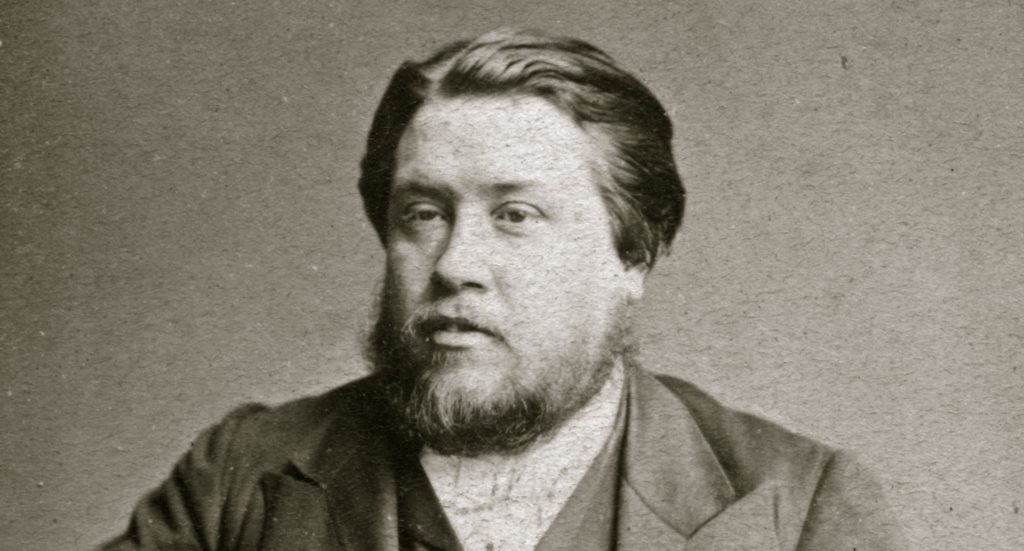
The fact that you are reading this article indicates with a high degree of certainty that you have been depressed. If this is the case, you should be encouraged to know that you are not alone. The one we dub the “Prince of Preachers” was just that because he was also the “Prince of Pain.” When articulating his own depression, Charles Spurgeon spoke with brazen clarity:
“The worst cloud of all is deep depression of spirit.”
“The worst ill in the world is a depressed spirit.”
“Of all things in the world to be, dreaded despair is the chief.”
“Depression is . . . the shadow of death.”
“Depression is . . . my horror of great darkness.”
These were not mere pithy, little sayings doled out to be quotable. Rather, they were forged in a lifetime of brute experience. From the age of fifteen to his death in 1892, Spurgeon was never fully liberated from “Giant Despair.”
Overcoming Extreme Heaviness
In his sermon “Our Leader Through the Darkness,” Spurgeon provided his understanding of depression, which is crucial in grasping his spirituality and our own despondencies. He asked his congregation, “Do you know what exceeding heaviness means?” (“Exceeding heaviness” was a Victorian label for depression). Spurgeon took his grasp of des pondency one step further by linking the malady with spirituality. Spurgeon said, “depression of spirit” is “deep” when “accompanied with the loss of the light of God’s countenance.”
pondency one step further by linking the malady with spirituality. Spurgeon said, “depression of spirit” is “deep” when “accompanied with the loss of the light of God’s countenance.”
Depression was not merely “dullness, inertia, pessimism, and deep unhappiness,” as many of his Victorian counterparts believed. To be depressed, according to Spurgeon, was to feel God’s presence removed from life, which led to “extreme heaviness.”
For Spurgeon, Jesus was the “nearest, dearest, closest, most intense and most enduring relationship that can be imagined.” He consistently proclaimed that the “essence of spirituality is found in Jesus.” Little wonder, then, that Spurgeon declared, “To be forsaken of God is the worst ill that the most melancholy saint ever dreams of.” He chose the same superlative to describe depression. The worst ill is “to be depressed of spirit” and “to be forsaken of God.”
The “Whys” of Life and the “Prince of Peace”
In the heat of history’s darkest day, Jesus also understood what it felt like to be forsaken by God. On the cross, the “Prince of Peace” took our sin (2 Corinthians 5:21) and became the “Prince of Pain.” Jesus broke the afternoon silence with a scream that Spurgeon called “the bottomless cry.” Jesus asked, “Why . . . me?”
The “whys” of life stump us. They are often the core question in our depression.
“Why did my baby die?”
“Why did a maniac fire into a crowd of people?”
“Why does Planned Parenthood prosper?”
“Why did I get cancer?”
“Why does my ministry languish?”
Jesus and Spurgeon take the “whys” one step further and recall Christ's dying words, “God, why have You forsaken me?” (Matthew 27:46).
When depression intrudes into our lives, we want to know why. We want to know why a particular circumstance has caused our malady. Spurgeon and Jesus both experienced depression because they believed God had forsaken them. And this, above all, was a “prelude to hell,” one that was completely “unendurable.”
Yet Jesus, our Prince, took hell for us. Spurgeon’s struggle with depression is more closely linked to Jesus's depression than we initially conceived. Perhaps that's why Spurgeon was called the “Prince of Preachers,” because he knew the “Prince of Pain.”
About the Author
 Dr. Brian Albert serves as senior pastor of Calvary Baptist Church in Lenexa, Kansas and as adjunct professor at Midwestern Baptist Theological Seminary in Kansas City, MO. He earned his PhD from The Southern Baptist Theological Seminary in Louisville, Kentucky. His dissertation was “When the Wind Blows Cold: The Spirituality of Suffering and Depression in the Life and Ministry of Charles Spurgeon.”
Dr. Brian Albert serves as senior pastor of Calvary Baptist Church in Lenexa, Kansas and as adjunct professor at Midwestern Baptist Theological Seminary in Kansas City, MO. He earned his PhD from The Southern Baptist Theological Seminary in Louisville, Kentucky. His dissertation was “When the Wind Blows Cold: The Spirituality of Suffering and Depression in the Life and Ministry of Charles Spurgeon.”

Volumes 1 and 2 of The Lost Sermons of C. H. Spurgeon by Christian George are 50% off right now.